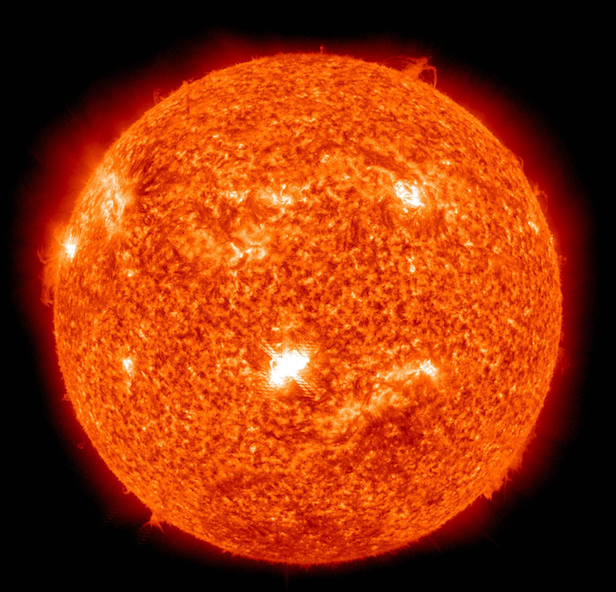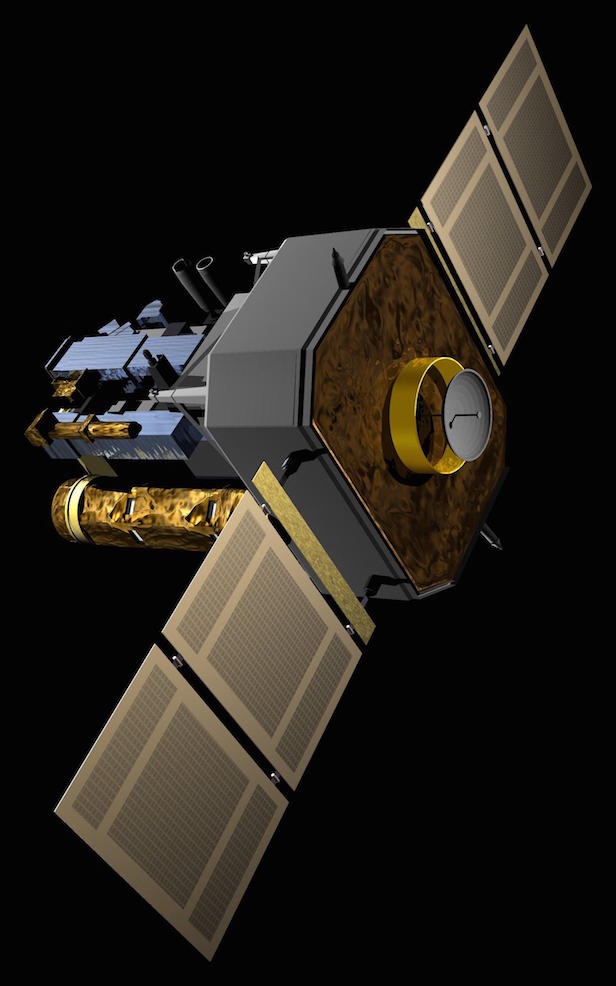Astronomers discover the Sun’s core is rotating faster than the surface
Our nearest star’s centre is moving four times fast might give indication to its early age

Recent results show the Sun’s core rotates four times fast than its surface. Image credit: NASA/SDO
The Sun’s interior has been an anomaly for centuries, but scientists have made another step closer to understanding it by showing the core is rotating four times faster than the surface. Astronomers hope this will tell us more about the early ages of the Sun.
When NASA and the European Space Agency (ESA) launched the Solar and Heliospheric Observatory (SoHo) back in 1995, on board was an instrument that was vital for this discovery – the Global Oscillation at Low Frequency (GOLF) instrument. GOLF analysed the surface acoustic waves in the solar atmosphere, some of these even penetrate to the solar core.
When these acoustic waves reach the core, they interact with gravity waves that have a sloshing motion similar to how water moves around in a half-filled water tank. So by measuring these waves in detail, the astronomers deduced the time taken for the acoustic wave to leave the core and reach the surface. The time it takes to travel is in fact influenced by the small amounts of movement from the gravity waves.

The SoHo spacecraft is still operational after over 20 years of service. Image credit: NASA
Roger Ulrich, a University of California, Los Angeles (UCLA) professor emeritus of astronomer, has been studying these waves for 16 years, analysing the acoustic wave data from the GOLF instrument. He believes the results will reveal a part of the Sun’s history: “The most likely explanation is that this core rotation is left over from the period when the sun formed, some 4.6 billion years ago,” he says. “It’s a surprise, and exciting to think we might have uncovered a relic of what the Sun was like when it first formed.”
This theory that the core rotates faster than the surface has existed for over twenty years, but it has only been proven now. It is believed that after the Sun formed, the solar wind likely slowed the outer region of Sun. This sort of motion can greatly affect the surface sunspots, some of which are even greater in size than the Earth.
Keep up to date with the latest space news in All About Space – available every month for just £4.99. Alternatively you can subscribe here for a fraction of the price!




